Author: federationcja

-
 Photo Credit : © CRILA
Photo Credit : © CRILA -
 Photo Credit : Sonia Benezra, personal archives
Photo Credit : Sonia Benezra, personal archives -
 Photo Credit : Sonia Benezra, personal archives
Photo Credit : Sonia Benezra, personal archives - https://www.youtube.com/watch?v=_wmtbPoVb0s
- https://www.youtube.com/watch?v=vUqW9nKoOjc
-
 Photo Credit : Sonia Benezra, personal archives
Photo Credit : Sonia Benezra, personal archives -
 Photo Credit : Sonia Benezra, personal archives
Photo Credit : Sonia Benezra, personal archives
Sonia Benezra
Deemed “Quebec’s Barbara Walters,” Sonia Benezra is a bilingual Canadian TV and radio interviewer, television personality and actress, best known for her work on MusiquePlus.
Benezra was born in Montreal to an allophone Sephardic Jewish family from Morocco and Spain. She graduated from Concordia University with a degree in theatre, and began her career in television and popular media. However, it wasn’t until she had a battle with a Montreal theatre company over whether her ethnicity was right for a specific part, that she was catapulted to fame. Benezra soon found herself being discussed in Canadian journalist and radio broadcaster Tommy Schnurmacher’s column in the Montreal Gazette. Soon afterwards, Montreal-born founder of Toronto-based MuchMusic, Moses Znaimer, contacted the aspiring actress. One screen test later, Benezra was deemed the first female hire for MusiquePlus, MuchMusic’s Quebec-affiliated branch.
Equipped with a photographic memory and a penchant for languages, Benezra became one of the first North African faces in popular Quebec media. She has interviewed major stars like Leonard Cohen, Al Pacino and Sting. Benezra soon became a household name in Montreal, producing more than 200 shows per year for MusiquePlus, with over a million viewers per show.
Today, Benezra continues to work in both French and English-speaking Quebecois media. Her bubbly voice, exuberant personality and widespread influence are now an inseparable part of popular culture in Quebec.
Learn More:
http://www.lapresse.ca/arts/201506/08/01-4876169-al-pacino-a-coeur-ouvert.php
http://www.canada.com/montrealgazette/news/arts/story.html?id=86a6377f-09b3-4668-8205-854b7d6f3016
Quebec TV ‘outsider’ beat back detractors to become vee-jay star
https://www.youtube.com/watch?v=_wmtbPoVb0s
https://www.youtube.com/watch?v=vUqW9nKoOjc


-
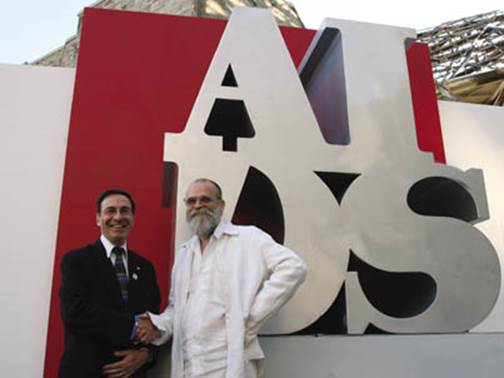 Dr. Mark Wainberg and AA Bronson at the Royal Ontario Museum unveiling of the AIDS sculpture by the Canadian arts collective General Idea (2006).Photo Credit : McGill Reporter
Dr. Mark Wainberg and AA Bronson at the Royal Ontario Museum unveiling of the AIDS sculpture by the Canadian arts collective General Idea (2006).Photo Credit : McGill Reporter -
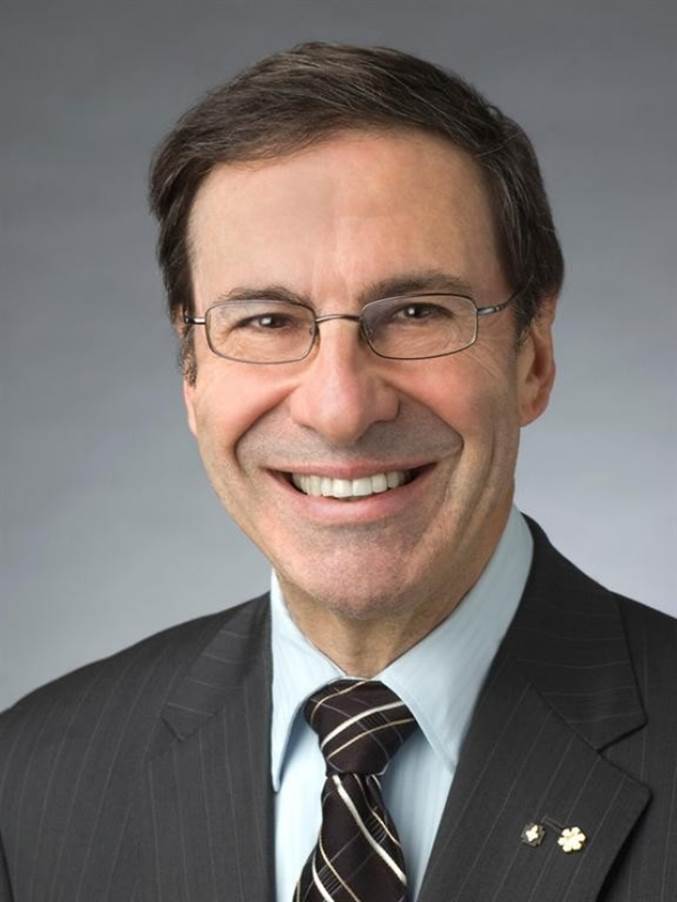 Dr. Mark Wainberg, 2009.Photo Credit : The 2016 Merigan Lecture
Dr. Mark Wainberg, 2009.Photo Credit : The 2016 Merigan Lecture
Dr. Mark Wainberg
Dr. Mark Wainberg was an award-winning HIV/AIDS researcher and humanitarian activist whose discoveries have enabled work on AIDS therapies and infectious disease prevention.
A graduate of McGill and Columbia Universities, Wainberg completed his post-doctoral research at Hadassah Medical School in Jerusalem. He is best known for the use of antiretroviral therapy in fighting HIV/AIDS and the subsequent popularization of this therapy.
Besides his medical ingenuity, Wainberg is well-known for his humanitarian activism on behalf of those who suffer from these diseases, dedicated to humanizing the HIV/AIDS crisis. In particular, he has focused on the crisis in Africa and the developing world, and the need to provide low-cost medications – much of which he advocated for while serving as President of the International AIDS Society.
In 2012, Wainberg received a Killam Prize in Health Sciences and in 2013, he was one of five recipients of the Canadian Institutes of Health Research (CIHR) and the Canadian Medical Association Journal Top Canadian Achievements in Health Research Awards. In 2016, he was inducted into the Canadian Medical Hall of Fame. He holds the Order of Canada, Order of Quebec and French Legion of Honour. He is a member of the Royal Society of Canada, as well as an honorary fellow of the Royal College of Physicians and Surgeons of Canada
Wainberg was head of AIDS research at the Lady Davis Institute for Medical Research, Director of the McGill University AIDS Centre and Professor of Medicine and of Microbiology and Immunology at McGill University. He was also an active member of the Montreal Jewish community.
Learn more:
http://www.ladydavis.ca/en/markwainberg
http://publications.mcgill.ca/reporter/2013/03/18485/
https://www.youtube.com/watch?v=46UeJWVDtjs
https://www.youtube.com/watch?v=iVokMPWyyuA
https://www.youtube.com/watch?time_continue=61&v=uPP2AQvqPYE
https://www.youtube.com/watch?v=qz7l5ayqfjE
http://montrealgazette.com/news/local-news/leading-montreal-aids-researcher-mark-wainberg-dies-in-florida

-
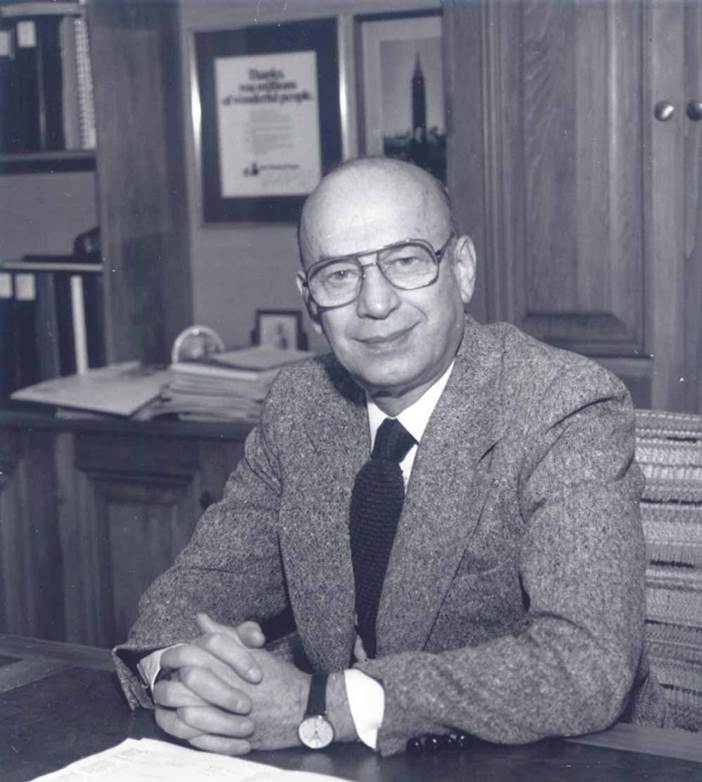 Manuel G. Batshaw in 1975.Photo Credit : Alex Dworkin Canadian Jewish Archives
Manuel G. Batshaw in 1975.Photo Credit : Alex Dworkin Canadian Jewish Archives -
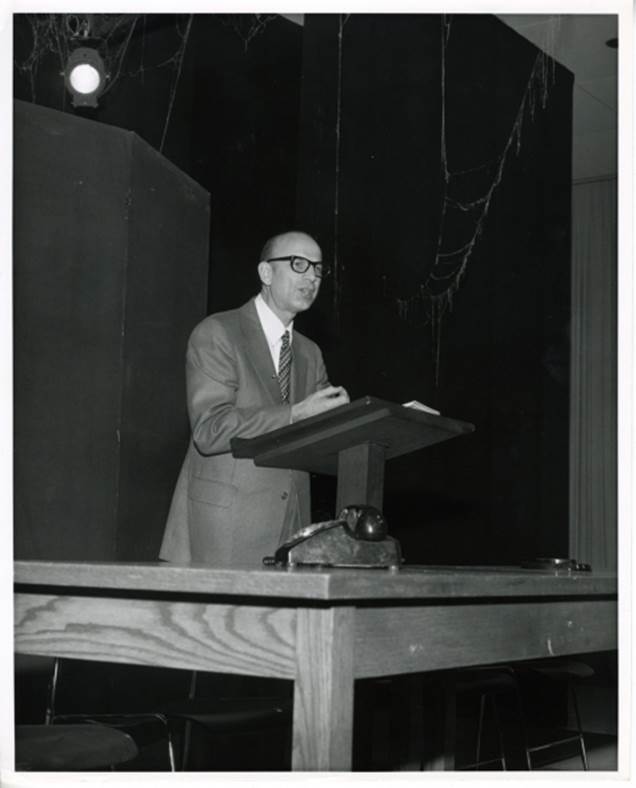 Manuel Batshaw at podium, 1972.Photo Credit : Jewish Public Library - Archives
Manuel Batshaw at podium, 1972.Photo Credit : Jewish Public Library - Archives -
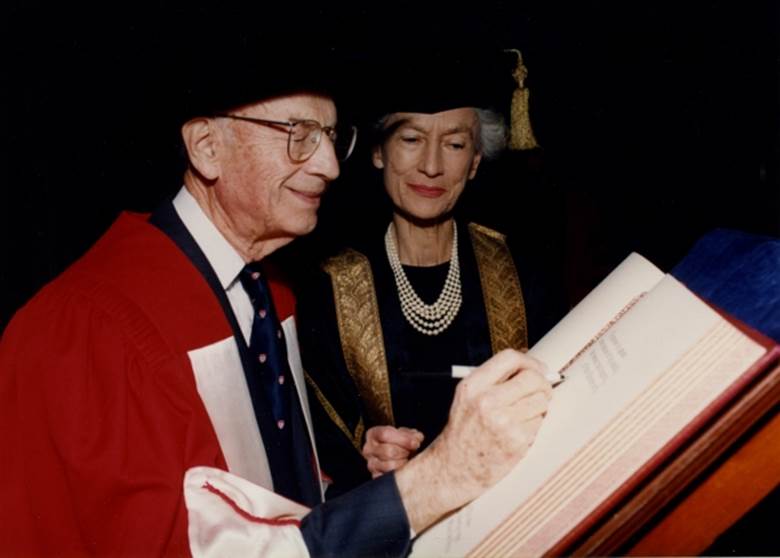 Manny Batshaw receiving his LLD from McGill University.Photo Credit : Jewish Public Library - Archives
Manny Batshaw receiving his LLD from McGill University.Photo Credit : Jewish Public Library - Archives
Manny Batshaw
Manuel Gilman Batshaw (Manny) was an influential and well-respected Montreal social worker, who helped found Batshaw Youth and Family Centres.
Batshaw’s parents, Tuvieh Batshaw and Golda Batshaw (née Gelman), immigrated to Montreal from Russia in 1903. He was the youngest of four sons, and the family had a very limited income. While his father worked outside of the home, Batshaw’s mother ran a small grocery store from their living room.
In 1942, Batshaw volunteered for the Canadian Armed Forces, where he attained the rank of Captain. After the war he was invited to become the Executive Director of the Red Cross in Montreal. Between 1947 and 1968, he lived in Philadelphia, Hamilton, Atlanta, Newark, New Jersey and New York. Then, the Allied Jewish Community Services (AJCS) asked him to return to Montreal to be their Executive Director; Batshaw agreed, remaining in that position until 1980.
During the AJCS’s “Batshaw Era,” fundraising increased five-fold, the organization expanded and many buildings, such as Cummings House, were built. Following the implementation of Bill 65, Batshaw made it his personal mission to look after his people and to reassure the community about their place in Montreal. He insisted on making it the right of all Jewish children to have a Jewish education, he helped to integrate the Francophone Sephardic population into the AJCS, he organized trips for students to visit Israel, and in the face of possible Quebec separation (when many Anglophone Jews were leaving the province), he fought for French immersion education in Jewish schools. His compassion was felt far beyond the walls of AJCS.
In 1974, following The Montreal Gazette’s story detailing the maltreatment of children in a welfare institution in La Prairie, Batshaw’s recommendations on institutional change were published in the local newspapers, and soon after, almost all of them were implemented. Batshaw was then asked to spearhead a thorough examination of the province’s other institutions, which culminated in an 11-volume report informally titled The Batshaw Committee Report. This led to the enactment of Bill 24, Quebec’s Youth Protection Act. In 1993, when the five Anglophone child welfare institutions of Quebec amalgamated, the new name was an easy choice: Batshaw Youth and Family Centres.
After his retirement from AJCS in 1980, Batshaw joined Claridge Inc. at the request of his friend Charles Bronfman, as the Consultant on Philanthropy and Jewish Affairs. He retired from this position in 1998. Batshaw was honored for his trailblazing career with the Order of Quebec, as well as the Order of Canada, and an honorary degree of Doctor of Law by McGill University.
Learn more:
http://globalnews.ca/news/1946712/manny-batshaw-celebrates-his-100th-birthday/
https://www.youtube.com/watch?v=kozyjS32uCg
https://www.youtube.com/watch?v=ZSK_Y5Q1b_M
https://www.youtube.com/watch?v=A9CcAtNCLBY

-
 Ian Greenberg, one of the four brothers who founded Astral Media Inc.Photo Credit : The Canadian Press
Ian Greenberg, one of the four brothers who founded Astral Media Inc.Photo Credit : The Canadian Press -
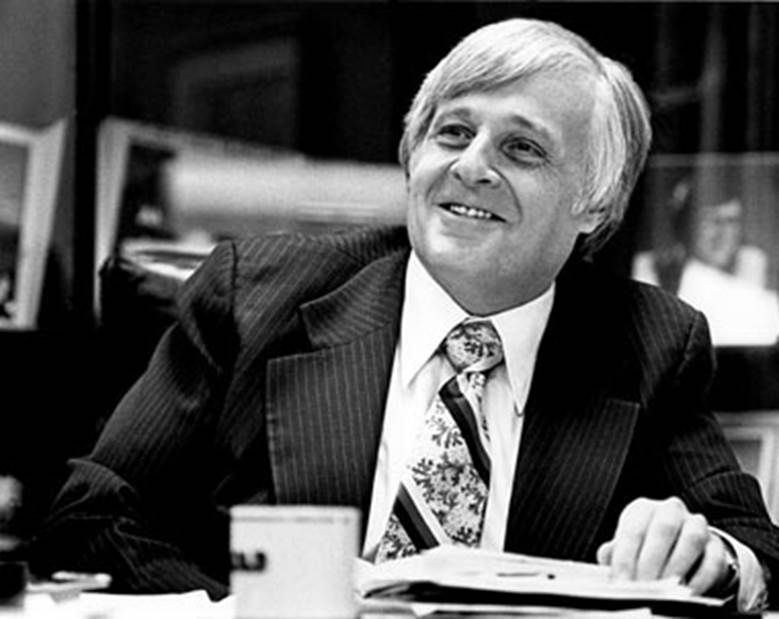 Harold Greenberg, Canadian Film Producer, Former Chairman of the Board, Astral Communications, (1980).Photo Credit : The Canadian Encyclopedia
Harold Greenberg, Canadian Film Producer, Former Chairman of the Board, Astral Communications, (1980).Photo Credit : The Canadian Encyclopedia -
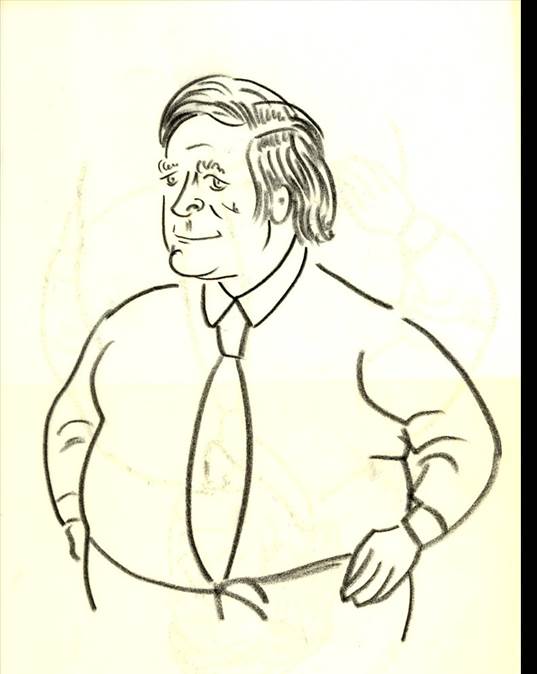 Sketch of Harold Greenberg by Louis Seligson.Photo Credit : Alex Dworkin Canadian Jewish Archives
Sketch of Harold Greenberg by Louis Seligson.Photo Credit : Alex Dworkin Canadian Jewish Archives
The Greenberg Family
Harold Greenberg and his three brothers – Harvey, Sidney and Ian – were the co-founders of Astral Media, Inc., one of Canada’s largest independent Media companies, which had its hand in photography, film, TV, radio and music.
The brothers, born into an Ashkenazi Jewish family, grew up in Montreal, around the Main and Côte Saint-Luc neighbourhoods. Their first joint venture was Angreen Photo Inc., a photo company which they founded in 1961. Then, in 1963, they acquired the Bellevue Pathe photo finishing labs. Their big break came with Expo 67, when Angreen was granted exclusive rights to sell films, cameras and photographic materials.
With their newfound fortune, Angreen was able to acquire Astral Communications, which would go on to become Astral Media, and own the largest group of radio stations in Canada, not to mention premium and specialty TV channels. The Greenberg brothers were the biggest shareholders, and Harold took on the role of President and CEO. In this position, he pushed the company to develop videocassette production, post-production and film distribution. He was an adamant supporter of using Quebecois, instead of Parisian, French subtitles for film and TV in the province. Towards the end of his career, he was expanding into new media, like CD-ROM and computer animation. Harold also made a name for himself in the movies, working as an executive producer on feature films including Porky’s, Breaking Point and The Neptune Factor.
Astral created The Harold Greenberg FUND (Foundation to Underwrite New Drama) to honour Harold’s support of Canadian programming, and over the next 20 years, the FUND invested over $50,000,000 in Canadian productions. In recognition of his community involvement, Harold was also made an Officer of the Order of Canada, Knight of the Legion of Honour, and a Knight of the National Order of Quebec.
In 1996, following Harold’s death, Ian assumed control of the company. It gradually transitioned into a pure-play media company, focused on television, radio, advertising and digital media properties. Before the company was acquired by Bell Canada in 2012, Astral Media boasted over 2,800 employees, in eight Canadian provinces, and operated 84 radio stations and 24 pay and specialty television channels.
Learn more:
https://en.wikipedia.org/wiki/Harold_Greenberg
http://www.theglobeandmail.com/globe-investor/a-bittersweet-day-for-ian-greenberg/article4202832/

